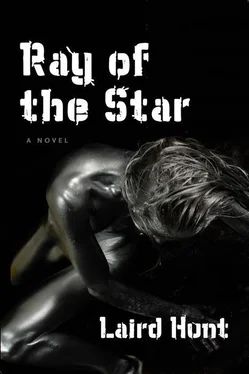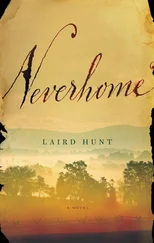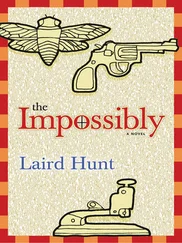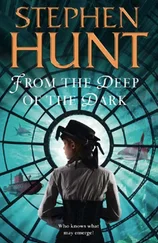“Exactly,”
“Of course, my friend, of course, it’s in the nature of things,”
“She and I have something in common,”
“I don’t doubt it, and I don’t want to make light of your feelings or make fun, but I will permit myself to say that in your admiration for the angel you are neither, as the old expression goes, the first nor will you be the last, though if your goal is to approach and be noticed by her, favorably noticed that is, I’m quite certain your woeful Don Quixote getup won’t help you,”
“You’re as blunt as the connoisseurs,” said Harry,
“Have you attempted to speak to her?”
“Not directly,”
“Wise decision, the last time she returned someone’s compliment the results were disastrous,”
“Disastrous?” Harry said, taking a deep sip of his sparkling water and pressing on the wedge of lime with his tongue, the resultant burst of tartness helping to check the momentary feeling of panic that had swept over him when Alfonso had used that word — which word, perhaps for emphasis, perhaps because he had seen and enjoyed the reaction it had caused in Harry, Alfonso used again, then he said,
“Do you have time for another water? if you do I’ll tell you a story, about the silver angel and how she came to have those tears on her face,”
“I have time,” Harry said,
“It was told to me — as I suspect, since it seems to be common knowledge on the boulevard, it was told to all the others — by the connoisseurs, and I will do my best to use their language and euphemisms in retelling it to you, although of course what you hear will by necessity differ in some hopefully small degree from what they told me,”
“Is what they told you true?” asked Harry,
“True enough, true enough, and if it isn’t then at least you will have heard a story, shall we order another round?”
“That will be fine,” Harry said.
“Once upon a time there was or there wasn’t a young woman named Solange who lived in a fine old city by the sea, and each day in that city she painted her face with gold and put on golden robes and wings and went and stood on the boulevard, which is famous the world round for its fine buildings and fine trees and crowds of people, but most of all for its extraordinary living statues, of which Solange, the golden angel, was the most beautiful and the most beloved, for when she smiled the sun slipped out of her mouth and danced in front of the crowds that would gather around her in such numbers that the boulevard was blocked and people seeking passage spilled out onto the surrounding streets, and while young men and young women alike fell hopelessly in love with Solange, and spoke to her and beseeched her to step down off her box, she never answered, never even seemed to look at them, until the day that the sun, having slipped out of her mouth to dance around in the crowd, stopped before a young man, who reached out a long, dusky finger and caressed it, as if it were a cheek, my cheek, thought Solange on her golden box, and when a moment later this young man came and stood before her and asked her to step down and join him for a drink, she shocked everyone (the murmur of it, which I remember well, rippled like electric wavelets all the way down the boulevard) by stepping down and removing her wings and walking off with him, and although Solange and the young man were often out and about in the days and weeks that followed it was as if they had pulled on magical cloaks that kept anyone from seeing them clearly, so that when they had been somewhere and then left it was like a dream had come, glowed for a moment, then gone, so love begins, and, in truth, ends, even when it ends so horribly, as Solange’s did, one night when her young man had gone out in search of milk and ended his search with a knife blade broken off so far down his throat it took the investigating officials several hours to discover the cause of death, though it did not take them so long to find the one who had broken his knife off in the young man’s mouth: after the deed he had drunk a bottle of sparkling water, swallowed a sprig of parsley and a fistful of Valium and went out to inform anyone who would listen that the golden angel, whom he had admired for far longer than the young man, would soon be his and his alone, without knowing that at the precise moment he had shoved his knife blade down the young man’s throat the golden angel had ceased to exist, for when, some weeks later, Solange reappeared on the boulevard, she was no longer golden — she had gone as pale as a piece of cloudy ice — and she never smiled, and there were tears on her face, and inside those tears, which she carefully affixed each morning and tore carefully from her face each night, were flecks of the broken blade, which the presiding coroner, who knew her from the boulevard, had given her out of pity, along with a piece of milk-stained cloth, when, after the young man’s family had swooped down and swept everything up, she had presented herself and asked in a clear, brittle voice if there was anything left from his final moments that she could have.”
When Alfonso had finished his story, harry excused himself, went to the restroom, locked himself in a booth, and threw up, and for a long time he stood there taking shallow breaths and wiping his mouth and forehead with squares of toilet paper until he realized that by doing so he was turning them gold, the color of the story, or at any rate one of its colors — blood red and death-metal silver being the others — and this thought reminded him that there were several follow-up questions he would like to ask Alfonso and that there would be more than enough time later to swim out into the icy depths of his own sea of sorrows, in which, midway through Alfonso’s account, he had found himself submerged, but when, after he had splashed water on the smeary makeup still covering parts of his face and straightened his hair, he got back to the table, Alfonso was gone and the booth had been occupied by a pair of teenage girls dressed like latter-day fans of the Bay City Rollers, one of whom, almost without looking up, handed him a napkin on which had been scrawled an address, a time later that evening, and the letter “A,” which made Harry think of the great tale by Hawthorne, though not, or only fleetingly, of the question of adultery, but rather of the novel’s deep forests filled with dense brush and gnarled trees and fallen leaves and drifts of snow and the bones of the animals and humans who had fallen there, not necessarily happily, perhaps even with their hands clasped and their heads cast heavenward, filling the empty sky with their useless piety and despair, much like, he thought with a dull shudder, his own gestures at a certain juncture, and here he still the fuck was, just like the knife-metal angel, who had once been a golden angel, whose name was Solange, who was still beautiful, even with her face broken and cast in shadow, Solange, he thought, whereupon two images floated like dead leaves down through his mind and landed one on top of the other, the first, of Solange, standing now farther away than ever from him on her box with the bits of metal on her face, and the other of the two of them somehow walking arm and arm along the shore, and, it seemed to him, if those thoughts could sit so close together, couldn’t he, somehow, find a way to step across the inconsequential divide: perhaps, perhaps not: though, yes, really what a fool he had been to put on his paint and plastic armor and stand out in the sun and hope to be noticed by her: even if the great Don might well have done just that, he, Harry, was no great Don, he was just a sad sack from a distant country attempting, halfway around the world, some ontological equivalent of the Humpty Dumpty story, which of course ended in emphatic confirmation of its own disaster, in spite of the neat rhyme, “Fuck Humpty Dumpty,” he said, and although he went to the trouble of extricating his duffel bag from under the table and the really quite absurdly dressed teenage girls, it was only to carry it out of the café and, with a sharp swing and hard kick, abandon it on the sidewalk outside.
Читать дальше












